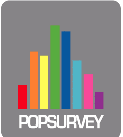Well, 2012 has been one of hell a ride for the search marketer. The only way to describe it is a series of ups and downs, thrills and spills, twists and turns. It has been a roller coaster of a year.
Regardless of your type of business, practices, and online discipline the convergence of so many forms of marketing, technical change, increased local and mobile adoption and fusion of big data has had an impact on everyone in the industry.
Over the next couple of weeks, some of the top expert from SEW will share insights, yearly reviews, and tips on SEO, PPC, social, local and mobile as we enter 2013. As a précis to that – today I wanted to give you an overview of the key changes the industry has faced in 2012 and share my list of top articles that highlight change throughout 2012.

Cause and Consequence
2012 started with the continued growth of search with the North American SEM industry projected to grow by to $23 billion over the year.
Search grew and Google changed. Google changed the way that people find information in search. Like it or not, it has changed the way that the search industry operates. No matter what your viewpoint or angle, there is always a cause and a consequence – a theme you'll notice recurring throughout this post.
It’s Only Natural to Start With Google and SEO
Google’s pursuit for relevancy really kick started the year as Google Search Plus Your World launched to solve issues regarding trust and authority of content by adding people, pages, and profiles that are all also fully integrated in search results.
Updates such as Caffeine and Google Panda reduced rankings for low quality sites and improved rankings for sites with great, innovation, and insightful content. Penguin then came along and cleaned up web spam and tried to put an end to black hat practices.
Google’s SSL changes meant that ‘not provided’ accounted for up to 24 percent of search traffic. The industry reacted and concerns about negative SEO and spammy backlink profiles became prominent. Google and Bing then introduced “Disavow Links” tools into their Webmaster Tools sets.
Google continued its clamp down of third party tools that 'scrape data' from Google. For many this signified a tipping point and choice between scraping or having access to the Google adwords API. The irony that Google itself scrape the web was not lost on many. However, the reality is that Google once again has forced the hand of many SEOs and in particular tool providers.
http://searchenginewatch.com/article/2232619/The-Search-Marketing-Roller-Coaster-2012-Year-in-Review?utm_source=twitterfeed&utm_medium=twitter

No comments:
Post a Comment